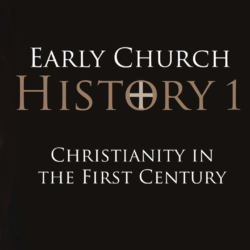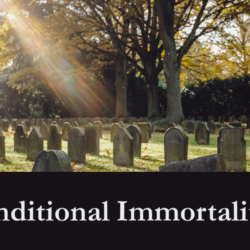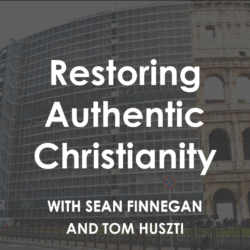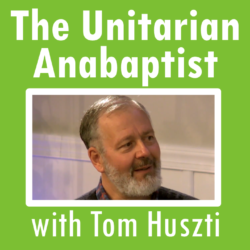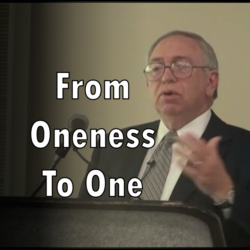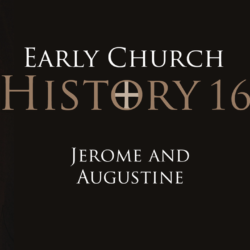Learn about the Swiss Reformation, spearheaded by Ulrich Zwingli in Zurich as well as the formation of the sect of Anabaptists known as the Swiss Brethren, including Conrad Grebel, Felix Manz, and George Blaurock. Key events covered in this episode include:
- 1519 Ulrich Zwingli begins Reformation in Zurich
- 1529 Zwingli and Luther part ways over communion
- 1523 Conrad Grebel broke with Zwingli
- 1525 Founding of first Anabaptist house church
- 1527 Felix Manz martyred by Protestants
- 1529 George Blaurock burned at the stake
This is lecture 3 of a history of Christianity class called Five Hundred: From Martin Luther to Joel Osteen.
All the notes are available here as a pdf.
—— Notes ——
Ulrich Zwingli (1484-1531)
“Zwingli’s reputation for biblical preaching led to his nomination for the post of people’s priest at the Great Minster in Zurich in 1518. Detractors raised the issue of Zwingli’s womanizing. Zinwgli responded to the rumor that he had seduced the daughter of an influential citizen by admitting his struggle with sexual temptations but denying both the woman’s ‘purity’ and her father’s influence.
‘Some three years ago I firmly resolved not to touch a woman;…I succeeded poorly in this, however. In Glarus I kept my resolution about six months, in Einsiedeln about a year,…That girl was a ‘virgin’ during the day and a ‘woman’ at night. She was such a ‘day’ virgin, however, that everyone in Einsiedeln knew exactly her role…She had had affairs with many men, finally with me. Or let me say it better: she seduced me with more than flattering words.’
The charge of immorality was finally ineffective since the other priest vying for the post lived openly in concubinage and had six children.
In light of this specific example and the generally widespread practice of priestly concubinage in the late Middle Ages, it is not surprising that one of the first reforms initiated in the Swiss Reformation was the right of the clergy to marry. …[Only months after the ‘Affair of the Sausages,’ Zwingli, then living with the widow Anna Reinhart, led ten other Swiss priests in a petition to the bishop of Constance To Allow Priests to Marry, or at Least Wink at their Marriages (July 1522). The priests signing this petition declared that chastity is a rare gift of God, and that they hadn’t received it. Zwingli married Anna in a public ceremony in 1524 shortly before the birth of their child. In 1525 the Zurich magistrates instituted a marriage ordinance mandating clergy living in concubinage either to end the relationship or to marry.”[1]
The following happened in 1519
- Zwingli became leading priest in Zurich
- He preached from his own text rather than the church’s calendar
- He instituted Bible study groups
- He decided everything should be judged by Scripture
- He ministered during the plague
1522 – “Affair of the Sausages”
1523 – public disputation (Zwingli vs. Catholic Representative)
1525 – marriage required for priests/monks w/ concubines
1529 – Marburg Colloquy
1531 – died in battle
The Swiss Brethren
- Conrad Grebel (1498-1526), a scholarly aristocrat
- 1521 – came to Zurich and studied under Zwingli
- 1522 – experienced conversion
- 1523 – broke with Zwingli over the Mass issue
“He [Zwingli] continued to defend the principle of the sole authority of Scripture; in practice he followed the wishes of the council, thus virtually committing the implementation of reform of the church to the civil government. This was a grievous blow to many of Zwingli’s friends; and, although some of them, including Grebel, may have yearned for a regenerate magistracy, it is at this point that we begin to see the definite indications of withdrawal of those interested in the immediate introduction of New Testament standards.”[2]
-
- Jan 17, 1525 – publicly debated Zwingli over infant baptism
- Jan 21, 1525 – he baptized George Blaurock and started Anabaptist movement
- “Anabaptist” means “re-baptizer”
- He became a missionary until his death in 1526 of disease.
- Felix Manz (1498-1527), illegitimate son of a priest w/ great education
- 1519 – began following Zwingli
- 1523 – broke with Zwingli over the Mass issue
- Translated Old Testament from Hebrew into common language
- Active in much door-to-door evangelism
- 1527 – became first one martyred by Protestants
- George Blaurock (1491-1529), a priest, not a scholar
- 1524 – came to Zurich
- Large, intimidating man who interrupted church services and took over the pulpit
- 1527 – severely beaten and banished from Zurich
- 1529 – became pastor of a church in Tyrol (western Austria)
- Sept 6, 1529 – burned at the stake
- Hymn he wrote in the last 3 weeks of life
Gott, dich will ich loben
Lord God, how do I praise Thee
From hence and evermore,
That Thou real faith didst give me
By which I Thee may know.Forget me not, O Father,
Be near me evermore;
Thy Spirit shield and teach me,
That in afflictions great
Thy comfort I may ever prove,
And valiantly may obtain
The victory in this fight.
[1] Carter Lindberg, The European Reformations (Malden, MA: Blackwell Publishing 2006), p. 172.
[2] George Williams, The Radical Reformation (Kirksville, MO: 2000 Truman University Press), p. 187.
—— Links ——
- See all the episodes of Five Hundred: From Martin Luther to Joel Osteen.
- For a much more in depth treatment of the Reformation period, check out Brad S. Gregory’s History of Christianity in the Reformation Era class at The Teaching Company
- The three main textbooks for this class include:
- The European Reformations by Carter Lindberg
- The Radical Reformation by George Williams
- Modern Church History by Tim Grass
- Check out these other Restitutio historical podcasts
- Intro music: “District Four” by Kevin MacLeod. Licensed under Creative Commons: By Attribution 3.0 License.

